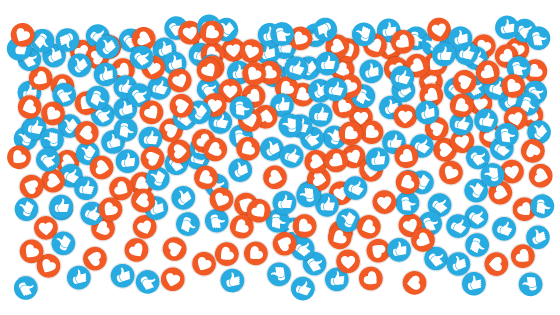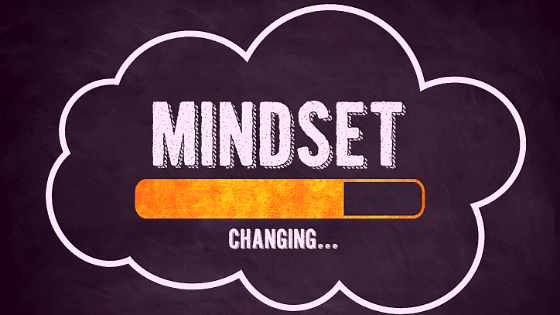IT'S TIME TO SCALE YOUR BUSINESS
The HUSTLE Stage
Where Problem and Market Need to Collide for Success.
The whole purpose of the HUSTLE stage is brand-market alignment. Does your market have a problem that you can solve today? Is your brand relevant to the market's wants and needs?
Remember, each stage can apply to the business as a whole as well as to individual products or services. Different parts of your business could be in different stages which is why working with us can help you navigate the uncertainty and generate results faster. Contact us to get started today.
A Business in this Stage
You may think that HUSTLE is only relevant to startups or up to 10M, but you would be wrong. Every business goes through stages. If the business wasn't correctly positioned, it may need to rebrand or reposition itself. If it stays around long enough, it will need to reinvent itself to stay relevant or to be perceived as relevant in the market. Think of how brands like Old Spice, Starbucks, and Pepsi have reinvented themselves. WAfd, Siemens, and C-SPAN have also reinvented themselves. Here is an article that talks about well-known brands who have had to revisit the HUSTLE phase. Here's another one.
A Product or Service in this Stage
HUSTLE is about identifying the actual problem that your product or service is intended to solve as well as identify the actual audience that is willing to pay for it. You'll most likely have an idea of the problem as well as who is willing to pay for it, but how much clarity and certainty do you really have? Does your market describe the problem the same way that you do? Are you focusing on a specific segment of the market or the entire market? Is the segment you're focusing on the most profitable one?
Master the M.O.S.T. Questions
Master the M.O.S.T. Questions
The Questions You'll Be Focused On in this Stage
The Questions You'll Be Focused On in this Stage
These questions keep you focused on what you’re selling is what you’re delivering. It emphasizes brand experience from prospects through repeat clients and aligning processes between marketing, sales, and client experience. Remember, as your business grows, your answers to these four questions will change. What won’t change is the questions—they will always remain the same.
It’s easy to be seduced by numbers. For many, they see the total addressable market (TAM) and multiply that by the price of their product or service—it's HUGE!! And it’s not reality. The TAM is simply intended to show the potential for the size of the market—which includes you, your competitors, and similar solutions to the problem that you’re solving. It’s not the size of your business.
This is also contrary to how search engines and social media algorithms work. Bigger is not better, anymore. Small is the new big. This smaller audience is called the total relevant market (TRM). Its focus is on the client that is most relevant for the product or service you have in the market for you today—or to put it in simple terms, the focused audience that is most likely to buy from you today, your client avatar.
In this stage, your marketing will be aimed at your total addressable market, generating a whole lot of leads through lists, events, digital ads, inbound and outbound strategies, calls, and demos. Sales will be focused on selling the dream. Each prospect and closed sale will allow you to gather the data to clarify how you fit in the market and who your specific relevant clients are.
You'll be assessing and gathering data on your brand identity, customer perception of value, what works for lead generation and closing a sale.
This is where the rubber meets the road and businesses often love to remain in theory mode. Yes, that is a contradiction. It’s easy for a business to SAY we do this, offer that, we are this, and so on. It’s another thing to actually deliver. Remember, just because you say it doesn’t mean it’s true, even if you believe it to your core.
Operations are the how-to and the technology you use to effectively execute on marketing, sales, and managing the client experience. It’s a logical and direct link between all the activities in the business and the business strategy—you could say it’s the brain of this methodology. Operations need to be streamlined, monitored, and adjusted as needed. What works for a business in startup mode, won’t work when it scales and, just because it is “working” doesn’t mean it is efficient or providing the best brand experience for your prospects or clients. Your operations help you compete in the market.
In this stage, operations are focused on setting up a CRM to organize and track your client data and conversion tracking, and a CMS to manage your communications and website content. These will enable you to track metrics like calls, demos, and close rates for sales, traffic, leads, funnel conversion rate, and cost per lead for marketing.
This is the million-dollar question. And the universal answer is “it depends”. One thing to keep in mind is that revenue is not the indicator of when to scale. The focus here is on how to produce success more effectively and consistently. It’s about scaling what you have first before you introduce anyone or anything new.
Once you figure out problem-market fit, you either transform and grow or stay and get stuck. No brand can afford to stay too long at this stage. Once you’re confident that you have the right product in the right market for the right client, then it’s time to start making the change to the next stage.
This is all about taking everything you’ve learned, implemented, and built and determining your next best opportunity because no company wants to stop growing. Whether you increase your sales, target a new vertical, or increase your offerings, each can be done on your own or through a merger or acquisition.
This stage is all about learning what works so you can build upon it.
Client Case Studies
THE COURAGE TO TAKE ACTION AND DRIVE MOMENTUM TO ACCELERATE YOUR PROGRESS AND RESULTS
Brilliant Articles & Resources
The resources below will help support you through this stage and prepare you for the next. Remember, we work with businesses in this stage all the time. So if you are ready to get started, contact us today.










